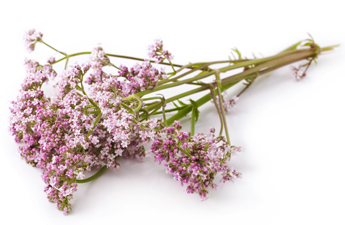Optimise your immunity with herbs
There is no better time than the present moment to optimise your immunity! There are many ways herbs can assist our bodies so that we are better equipped to fight off pathogens when they come knocking. It’s a great idea to have a herbal medicine stash on hand for when you need to call on your herbal allies.
Strengthen your System
Tonic herbs & adaptogens can help strengthen your immune system and your Wei Qi (surface immunity). Adaptogens help the body adapt to a wide range of internal and external stress factors, including sickness, lack of sleep, stress, and overwork, while enhancing physical and mental performance, endurance and overall vitality.
It is important to remember that we can also deplete our immunity & Wei Qi with
* poor sleep * emotional stress * lack of exercise & fresh air
* negative thoughts * arrogance * intoxicants
So remember to get plenty of sleep & exercise, and minimise intoxicants, stress & negativity in your life.
Here is a list of our favourite tonic herbs and adaptogens to strengthen your immunity:
Astragalus
This herb comes to us from Traditional Chinese Medicine, where it has long been used as an immune system tonic. It stimulates the body’s immune response against viruses and increases the activity of white blood cells. It is valuable in the prevention of recurring colds, debilitating viral infections and chronic illnesses.
Cordyceps
The Taoists revere this rare fungus as a life-enhancing herb, immune stimulant, and overall tonic. It benefits respiratory function, and helps the body utilise oxygen. Like other medicinal mushrooms, Cordyceps is considered an adaptogen, increasing resistance to stress, boosting stamina, energy and strength.
Reishi
Reishi is valued as a powerful immune booster, anti-inflammatory and adaptogen. Reishi contains triterpenes that reduce histamine reactions as well as protecting against viral, bacterial and fungal infections.
Siberian Ginseng
Siberian ginseng enhances the human immune response, as well as quickens the recovery from both acute and chronic disease. It has been shown to be beneficial for high and low blood pressure, and chronic bronchitis. It also assists with symptoms of overworking and exposure to environmental toxins.
Cat’s Claw
A traditional Amazonian medicine with a long history of use, Cat’s Claw is another great immune stimulant. It is rich in proanthocyanidin, a powerful antioxidant and free radical scavenger. This, combined with its ability to increase white blood cells, has made it a top choice in the natural treatment of cancer. Cat’s Claw cleanses the entire intestinal tract, assisting with many gastrointestinal disorders. It is also an anti-inflammatory & is a great herb to remember when your immune system is low, and can be used as a general daily tonic.
IMMUNE TONIC TEA:
Ingredients
1 part each: Licorice, Astragalus, Cat’s Claw, Siberian Ginseng.
Instructions
1. Simmer 1 Tablespoon in 1 Litre of water for 10 minutes.
2. Strain into cups.
3. Add 1/4 – 1/2 tsp of Superfeast Cordyceps, Reishi or Mason’s Mushrooms to each cup.
4. Drink 2-3 cups per day to supercharge your immunity & strengthen your defence.
Activate Immunity
At the first sign of infection such as sore throat or slight fever, a great way to support your body’s immune response is with immune stimulants, lymphatics & diaphoretics. Don’t suppress your fever, ‘sweat it out’!
Ginger
A top antiviral, diaphoretic, circulatory stimulant and anti-inflammatory. Make a strong tea of fresh ginger root to help soothe sore throat, fight infection, reduce pain and flush out a fever.
Echinacea
Famous for its ability to stop a cold or flu in its tracks, Echinacea is a great remedy against bacteria, viruses and fungi. It stimulates the action of the body’s immune system to attack invading organisms. Echinacea is also a powerful anti-inflammatory.
Propolis
Propolis is not actually an herb but a product of honeybees, made from tree sap which they collect and use to seal their hives. For humans, it is used as a natural immune booster, which can help fight infections, as well as heal wounds. Propolis has been found to be effective against bacteria, fungi and viruses (including herpes simplex). It makes an excellent gargle or spray for sore throats, and taken internally to help fight infection.
Yarrow
Yarrow also has long been used to promote sweating in cases of colds, flu, and fevers, thus helping the body’s natural mechanism to flush out simple infections. Its astringent action can lessen excess nasal secretions & tonify mucous membranes. Yarrow also contains salicylic acid (a compound like the active ingredient in aspirin), and has antispasmodic and anti-inflammatory properties.
Elder
Both the berry and the flower are useful at this stage. Elderberry syrup is a powerful antioxidant and immune stimulant. Elderflowers are diaphoretic and anticatarrhal, assisting with fevers and excess mucous.
Licorice
This soothing and demulcent herb is excellent for sore throats and irritated mucous membranes. It also acts as an expectorant, helping to loosen and expel phlegm. Licorice modulates the immune system and is a top anti-inflammatory as well as a powerful antiviral.
Tulsi
Also known as Holy Basil, this traditional Ayurvedic herb has been revered in India for thousands of years. Tulsi is an excellent choice for assisting coughs, colds and fevers, as well as improving digestion, relaxing the soul and sharpening the mind. It is considered an adaptogen, an herb which improves resistance to stress, and has been used as a preventative against epidemics such as cholera, influenza as well as malaria. With all this going for it, Tulsi is definitely a must-have in your medicine chest.
Andrographis
Known as the ‘King of Bitters’, this herb has a long history of use in India and China. It is used to combat infections (bacterial, viral and parasitic), support immune function and lower fevers. It is commonly used for colds, flu’s, respiratory and gastrointestinal infections and to expel parasites. It is a bitter digestive tonic that also supports gallbladder function and protects the liver. Avoid when pregnant or breastfeeding.
Pine Needle
This tea has been traditionally used in Chinese medicine to alleviate the flu, hormonal imbalances and complications with vision. North American natives used it as an expectorant and decongestant for respiratory congestion. There is growing scientific research to support its use with viral infections and chest infections. It is a source of shikimic acid, the active ingredient in the antiviral drug Tamiflu.
Lemon Myrtle
The leaves of this beautiful Australian rainforest tree make a delicious uplifting yet relaxing herbal tea that is excellent for colds and flus. In the 1991 Australian Journal of Medicinal Herbalism it has been reported to be antifungal, anti-viral, a calmative and a sedative. The leaves are full of wonderfully fragrant citral oil, smelling of a mixture of lemon and lime. Reach for a cup of this great Aussie native next time you’re feeling down!
IMMUNE ACTIVATE TEA:
Ingredients
2 tsp Echinacea
2 tsp Licorice
1 Tablespoon fresh Ginger
Instructions
1. Simmer in 1 litre of water for 10 – 15 minutes.
2. Add 1 – 2 Tablespoons of any combination of:
3. Lemon Myrtle, Tulsi, Pine Needle, Yarrow, Elderflower & Peppermint.
4. Cover & steep 10 minutes.
5. Strain & drink hot.
6. Sweeten with honey if needed.
Lung Support
Often, in the case of colds and flus, if our body doesn’t manage to fight off the infection at the beginning stage, the infection with descend into our lungs. At this point, lung cleansers and expectorants are useful, as well as strong antivirals to help fight the infection. Steam inhalation is also very helpful – add some essential oils such as Eucalyptus, Rosemary, Thyme, Peppermint & Sage to a bowl of hot water. Bend over the bowl, and cover you head with a towel, then breathe in slowly.
Here’s a list of some of our favourite herbs for lung support.
Elecampane
This is a premier herb for clearing congested lungs, great for bronchitis, emphysema and any chesty cough. Its powerful expectorant action helps clear out mucus, and its high mucilage content also soothes irritated tissues. It is also anti-bacterial and stimulates digestion due to its bitter principal.
Mullein
This is one of the top herbs for respiratory problems – in particular dry cough, hoarseness, bronchitis, phlegm, whooping cough, etc. It opens the lungs, lubricates the mucous membranes, relaxes the larynx and opens the sinuses. Mullein also stimulates fluid production and is thus useful for expelling phlegm.
Coltsfoot
The name of this herb means ‘cough stopper’ and has been used for that very reason for millennia. Coltsfoot clears mucous from the lungs, soothes lung tissue and stops wheezing.
COLTSFOOT contains small amounts of zinc; this has resulted in its restriction in Australia, therefore COLTSFOOT IS NOT SOLD FOR INTERNAL CONSUMPTION. Legally, coltsfoot cannot be taken as a tea (despite millennia of safe use) but it can be smoked, which surprisingly still works wonders for coughs and damaged lungs.
Lobelia
Also called Indian tobacco, lobelia has a long history of use as an herbal remedy for respiratory problems including bronchitis. It is an effective expectorant, meaning that it helps clear mucus from your lungs. However, lobelia can be toxic and should only be used under a doctor’s supervision. It is also restricted for internal use in Australia.
Peppermint
Great for opening the airways, Peppermint eases sinus congestion, promotes sweating & lowers fevers. Peppermint is also a top herb for the nervous and digestive system.
Marshmallow
A superb demulcent that soothes and softens mucous membranes.
LUNG SUPPORT TEA:
Ingredients
2 tsp Licorice
2 tsp Elecampane
2 tsp Mullein
1 tsp Marshmallow
2 tsp Peppermint
1 tsp Andrographis (this is super bitter!)
Instructions
1. Simmer licorice & elecampane for 10 minutes in 1 litre of water.
2. Add mullein, marshmallow, peppermint & andrographis.
3. Cover & steep 10 more minutes.
4. Strain & drink hot.
5. Add honey if needed.
We wish you the very best of health, and hope this article helps inspire you to optimise your immunity.
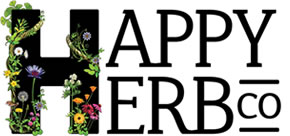
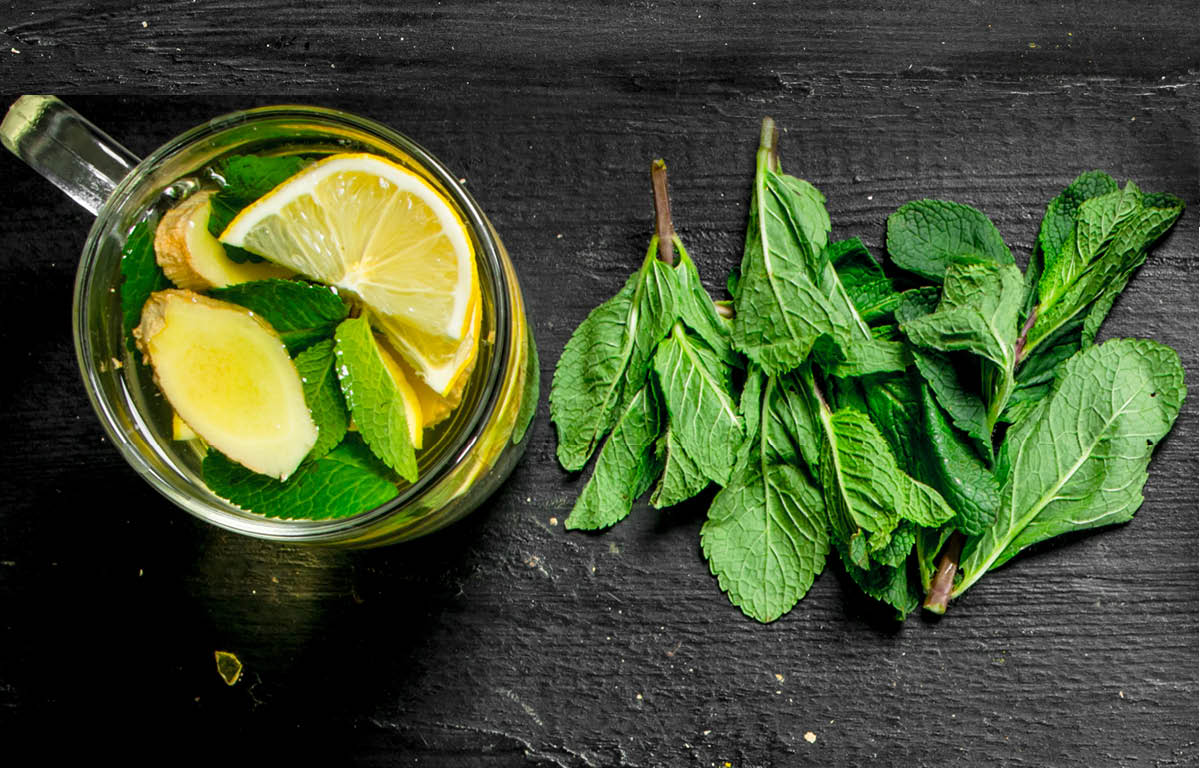
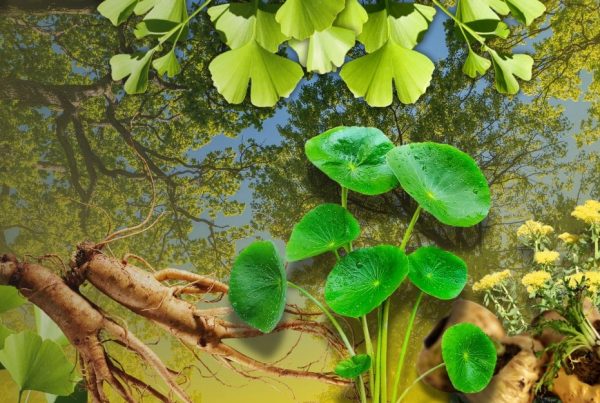
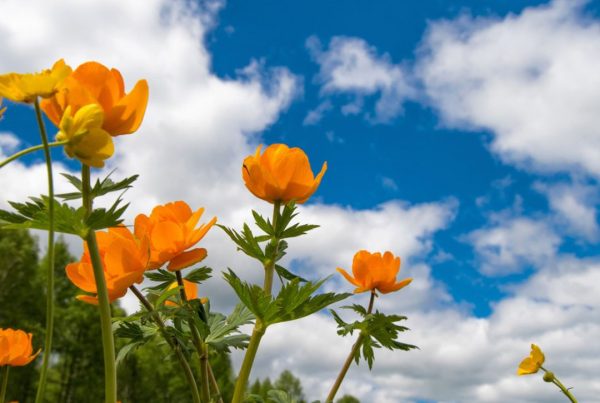
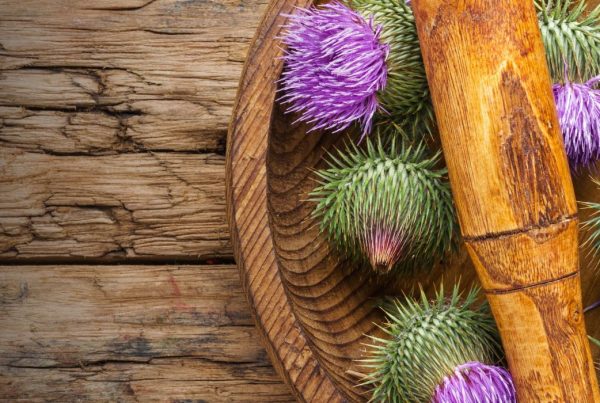
 Nextwave
Nextwave